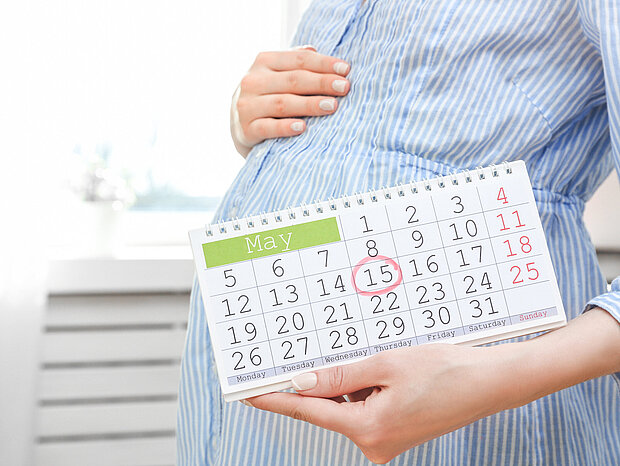
Rights and Responsibilities
The maternity protection period is six weeksbefore childbirth and eight weeks after the birth of the child. In the case of a premature or multiple birth, or if a disability is identified, the maternity protection period is extended to twelve weeks. If the delivery occurs before the expected due date, the maternity protection period is extended by the time not taken before the birth.
Your vacation entitlement remains intact. The period during which you are prohibited from working due to a work prohibition is treated as if you had been working during that time. This applies to both the maternity protection periods and any time you are prohibited from working due to a work prohibition.
If you have unused vacation days from before the work prohibition, you can carry them forward and take them after the prohibition ends. If you take parental leave following the maternity protection period, it is also possible to use the remaining vacation days after your parental leave.
As a pregnant employee, you are entitled to special protection against dismissal. From the beginning of your pregnancy until the end of the maternity protection period after childbirth, termination of employment (with very few exceptions) is not permitted. This dismissal protection applies equally to permanent employment contracts with probationary periods and remains fully valid even during the probationary period. The same protection also applies for up to four months following a miscarriage after the 12th week of pregnancy.
If you are unable to secure timely appointments for necessary prenatal check-ups outside of working hours, the university must grant you leave to attend these appointments. This leave covers not only the time required for the appointment itself but also the time needed for travel, if applicable.
Additionally, until your child's first birthday, you have the right to take leave for breastfeeding—at least twice a day for 30 minutes each or once a day for a full hour.